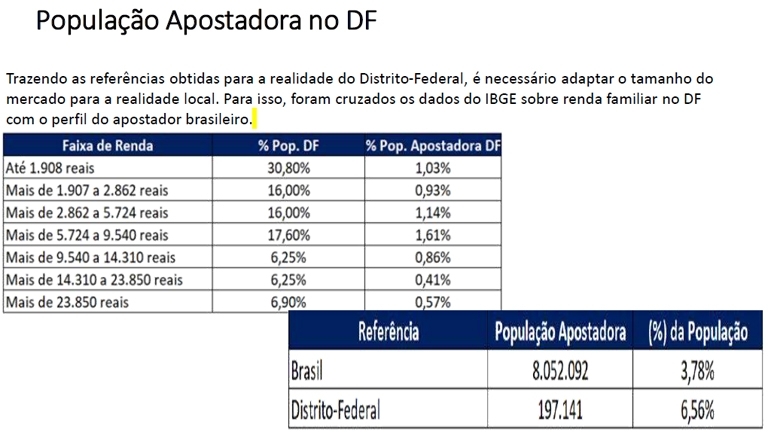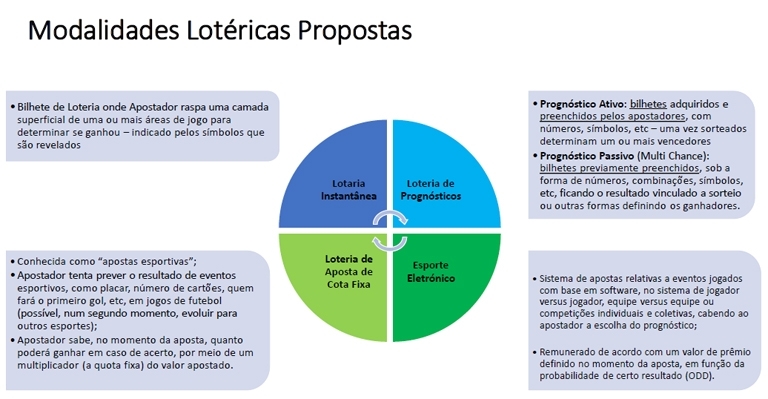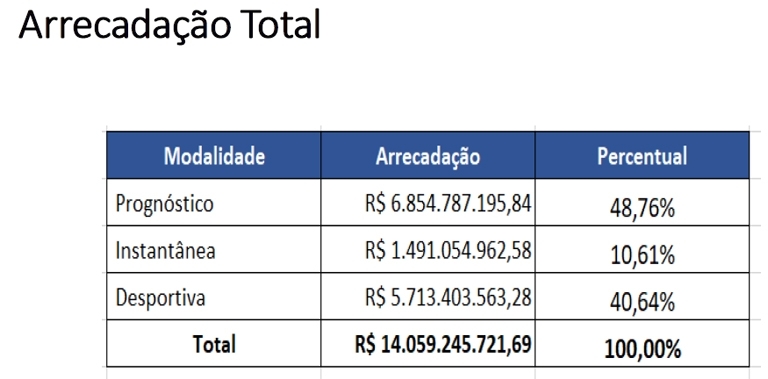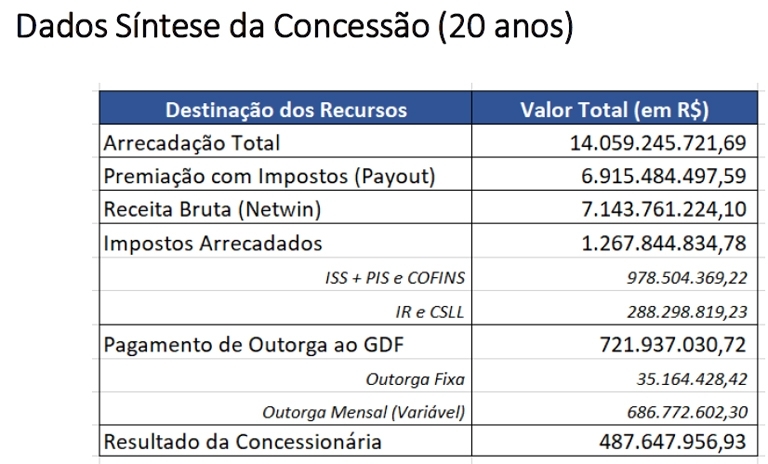

At the opening of the meeting, details of the study approved on June 21, prepared by MCE Intermediações de Negócios and Santa Casa Global Brasil, were presented. The first has ten years of experience in operating lotteries and is a games concessionaire for Loterj, in Rio de Janeiro, and a capitation title operator in the Federal District. The second is controlled by Santa Casa de Misericórdia de Lisboa, which has operated lotteries for almost 250 years in Portugal.

To base their studies, MCE and SCGB adopted statistical data from IBGE and POF in order to estimate the population that plays in the Federal District and the potential of the local market from the implementation of the DF Lottery.

“We have a reference that 3.78% of the Brazilian population bets on the existing lotteries, while in the Federal District this percentage reaches 6.56%. According to CEF, the average weekly ticket per bettor in the DF is R$ 58.00, which makes the Federal District very attractive,” comments Luiz Cherulli.
The modalities proposed in the study are:
Instant Lottery - Lottery ticket where the player scratches a surface layer of one or more playing areas to determine whether he has won (indicated by the symbols that are revealed).
Predictions Lottery - divided into two categories:
Electronic sports - betting system for events played based on software, in the player vs. player system, team vs. team or individual and collective competitions, with the bettor choosing the prognosis. Bettor will be remunerated according to an amount defined at the time of the bet, depending on the probability of a certain result (ODD).
Fixed-odds betting lottery - known as "sports betting". The bettor tries to predict the result of sporting events, such as the score, number of cards, who will score the first goal, etc., in football matches (possible, in a second moment, to evolve into other sports). The bettor knows, at the time of betting, how much he can win in the event of a hit, by means of a multiplier (the fixed-odds) of the bet amount.
The MCE/SCGB recommend a structure for deployment throughout the DF, consisting of betting places (exclusive gaming stores, canteens, street market, gas stations, etc.). Regarding the technological platform, the study points out as main requirements the focus on the customer, omni-channel approach (fixed and mobile physical points of sale, mobile applications and online platform), continuous operation, dynamic platform and with agility for the implementation of developments and updates, and a business intelligence module for monitoring and managing the business.
The proposal also includes confidentiality as per the LGPD, implementation of payment methods necessary for the proper functioning of financial transactions, validation and payment of prizes and responsible gaming.
In addition, the study recommends the submission of reference certification ISO/IEC 27001:2013 (information security) and WLA SCS:2016 (security, integrity and risk management by the World Lottery Association). This item generated discontent among those present, who questioned whether this certification was not being directed to meet the interests of the company that authored the study. Cherulli said no. "The company in question has three certifications and we are only requesting one, which opens the range for several companies and also gives the opportunity for those interested in the operation of the DF Lottery to seek certification".
As for the expected capital expenditures, the study points out:
• Infrastructure expenses
• Pre-Operational Expenses
• Recruitment and Training Expenses
• Development expenses
• Expenses with the first 2 months of operation
Of the total of R$ 21,187,827, the study shows that 58% will be destined to investments in the lottery of predictions, 17% for the instant lottery and 25% for sports betting. The monthly cost of the operation itself, in the study, reaches R$2.8 million.
Another point discussed among those present during the public hearing was the issue of payout. The study proposes a minimum of 40% for prediction lottery, 50% for instant and 60% for sports betting.
However, some participants at the meeting questioned the low competitiveness of payouts, noting that some countries, such as Colombia, adopt percentages of 83%. “The payout percentages were pointed out in the study we chose as the best. We received three other studies and they also pointed to the same range of prices distribution,” he stated.
According to the undersecretary, “it is feasible to operate with a 60% payout. Studies, tables and calculation methodologies indicate in the chosen study that it is possible to work with this level of award.”
Of the 83% pointed out during the questioning, Cherulli said that “83% of the payout should be for a social lottery, as it doesn't even pay the costs. It is unfeasible, in my view.”

The revenue expected for a 20-year operation is R$ 14.05 billion, generating gross revenue of R$ 7.143 billion. According to MCE/SCG studies, the fixed grant value, based on the financial data above, was indicated as being R$ 35 million, with the monthly grant (9.61% of the sales value), estimated at R$ 2.86 million per month.
During the hearing, the requirement for the operator to have an established network was questioned, which could configure a target. Cherulli stated that the questioning will be evaluated a posteriori, so that all data can be examined.

Those who are unable to send their statements during the event may use the e-mail [email protected], available for public consultation, until August 13th. After clarifying all doubts during this period, the public notice for the bidding will be prepared, which will be in the form of a single lot, in which the winner will be responsible for all the services and investments object of the concession.
The bidding will be in the form of competition, in which the bidder who offers the highest value for the grant to be paid will be the winner.
All questions raised during the hearing and during the break until the 13th, as well as other documents relating to the DF Lottery implementation process, will be available on the Secretariat for Special Projects website.
To download the presentation in pdf made by Special Projects Secretariat c click here.
Source: GMB